 Armchair football fans around Europe will soon be able to enjoy live Champion’s League matches over the Internet and mobile phones.
Armchair football fans around Europe will soon be able to enjoy live Champion’s League matches over the Internet and mobile phones.
The European Commission has declared its intent to promote the beautiful game over a range of platforms in an attempt to mollify European commission competition authorities who want to see rights owners promoting mobile phone and Internet usage.
A spokesman at football bosses UEFA confirmed that all broadcasters showing games live would be “obliged” to screen them online simultaneously.
By linking live television rights to the Internet package, UEFA hopes to calms the fears of broadcasters who suspect that a separate online deal would cut deeply into their audience figures.
 Champions League coverage in the UK is provided by BSkyB and ITV (both of whom look likely to retain their current rights), and the Internet simulcasts could provide a honey pot for new revenue streams with advertising and betting partners.
Champions League coverage in the UK is provided by BSkyB and ITV (both of whom look likely to retain their current rights), and the Internet simulcasts could provide a honey pot for new revenue streams with advertising and betting partners.
This may cause some friction with the big clubs like Man Utd and Arsenal who may be planning their own lucrative online propositions.
With media regulator Ofcom reporting that more than 8.1 million UK households now boast broadband connectivity, Internet television on demand is set to become, well, a household name.
 BSkyB has already announced its commitment to IPTV – programming delivered over broadband PCs or TV sets – and from later this year, premium package subscribers will be able to access content via a Sky Sports and Sky Movies broadband service.
BSkyB has already announced its commitment to IPTV – programming delivered over broadband PCs or TV sets – and from later this year, premium package subscribers will be able to access content via a Sky Sports and Sky Movies broadband service.
The service will offer 200 on-demand movies with sports junkies being able to access news, interviews and highlights (like wonderful Cardiff City goals) through the online sports channel
From 2006 the service could be offering Champions League games live, ensuring that only Sky Sports subscribers are able to log on, with non-subscribers having to fork out a pay-per-view premium.
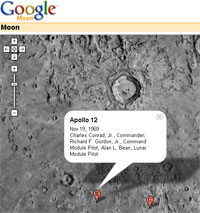 In honour of the first manned Moon Landing back in July 20, 1969, Google have launched an out of this world version of their Google Maps service – Google Moon.
In honour of the first manned Moon Landing back in July 20, 1969, Google have launched an out of this world version of their Google Maps service – Google Moon. Although you can use a sliding scale to zoom into the surface – just like the terrestrial version – and view landing sites, there are limitations to how close to the surface you can zoom because of insufficient NASA imagery.
Although you can use a sliding scale to zoom into the surface – just like the terrestrial version – and view landing sites, there are limitations to how close to the surface you can zoom because of insufficient NASA imagery. Glad you asked, and yes, the development of our Lunar hosting and research centre continues apace.
Glad you asked, and yes, the development of our Lunar hosting and research centre continues apace.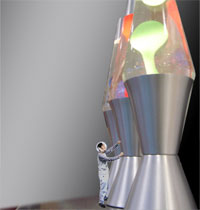 Google are also advertising jobs at their Google Copernicus Hosting Environment and Experiment in Search Engineering (G.C.H.E.E.S.E.), offering “high-density high-delivery hosting (HiDeHiDeHo) and de-oxygenated cubicle dwelling.”
Google are also advertising jobs at their Google Copernicus Hosting Environment and Experiment in Search Engineering (G.C.H.E.E.S.E.), offering “high-density high-delivery hosting (HiDeHiDeHo) and de-oxygenated cubicle dwelling.” BT has announced that it will be doubling the speed of its entry-level broadband service.
BT has announced that it will be doubling the speed of its entry-level broadband service. BT’s generosity knows some bounds though, with its no frills package retaining its monthly usage limit at 1 gig.
BT’s generosity knows some bounds though, with its no frills package retaining its monthly usage limit at 1 gig.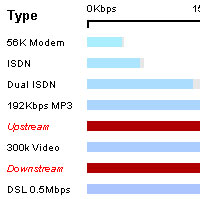 This is the second free upgrade that BT has introduced, with the telecoms giant upping the speed for all of its retail broadband customers back in February.
This is the second free upgrade that BT has introduced, with the telecoms giant upping the speed for all of its retail broadband customers back in February. I quickly learnt that not only was I paying more than most, but my BT connection was as swift as a sleepy sloth on a hot day compared to the rocket-like speeds quoted by others.
I quickly learnt that not only was I paying more than most, but my BT connection was as swift as a sleepy sloth on a hot day compared to the rocket-like speeds quoted by others.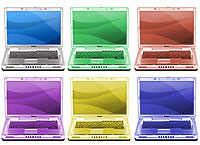 The doomsayers were predicting a slow year for PC shipments, but a continuing shift to notebooks and falling PC prices have made it a bumper second quarter for the worldwide PC market, according to research companies IDC and Gartner.
The doomsayers were predicting a slow year for PC shipments, but a continuing shift to notebooks and falling PC prices have made it a bumper second quarter for the worldwide PC market, according to research companies IDC and Gartner.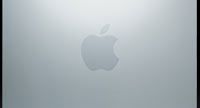 The company enjoyed big sales outside the US and remains the market share leader in many countries throughout Europe.
The company enjoyed big sales outside the US and remains the market share leader in many countries throughout Europe.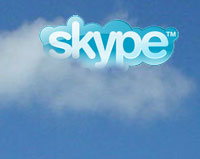 Skype has teamed up with The Cloud – Europe’s leading Wi-Fi network provider – to offer low cost Wi-Fi access and Internet voice calls at 6,000 of The Cloud’s hotspots in the UK and Sweden.
Skype has teamed up with The Cloud – Europe’s leading Wi-Fi network provider – to offer low cost Wi-Fi access and Internet voice calls at 6,000 of The Cloud’s hotspots in the UK and Sweden. Skype users ambling into a Cloud hotspot will be connected to the service as soon as they flip out their Wi-Fi enabled device.
Skype users ambling into a Cloud hotspot will be connected to the service as soon as they flip out their Wi-Fi enabled device.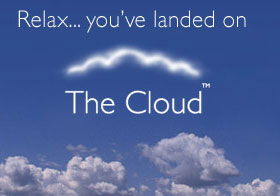 “Skype is bringing affordable Wi-Fi and voice calls to millions of users, enabling them to talk, IM and surf conveniently and cost-effectively from thousands of great locations. Our users in the UK and Sweden will benefit from The Cloud’s extensive network coverage in places where people really want to use it.”
“Skype is bringing affordable Wi-Fi and voice calls to millions of users, enabling them to talk, IM and surf conveniently and cost-effectively from thousands of great locations. Our users in the UK and Sweden will benefit from The Cloud’s extensive network coverage in places where people really want to use it.”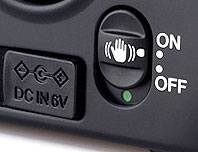 Konica Minolta and Sony Corporation have reached an agreement to jointly develop digital Single Lens Reflex (dSLR) cameras.
Konica Minolta and Sony Corporation have reached an agreement to jointly develop digital Single Lens Reflex (dSLR) cameras.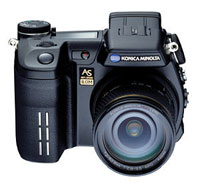 With Sony bringing their award-winning design expertise to the party – and their image sensor, image processing and battery technologies – we can expect some smarty-pants new product design to emerge from the partnership.
With Sony bringing their award-winning design expertise to the party – and their image sensor, image processing and battery technologies – we can expect some smarty-pants new product design to emerge from the partnership.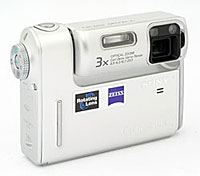 As prices of dSLR’s plummeted, the writing was on the wall for high-end fixed-lens models, so Sony’s move into the dSLR market was not unexpected.
As prices of dSLR’s plummeted, the writing was on the wall for high-end fixed-lens models, so Sony’s move into the dSLR market was not unexpected.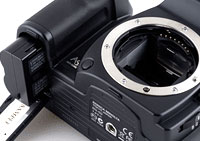 “Sony has powerful devices and technologies essential for digital cameras,” praised Tsuyoshi Miyachi, President and CEO of Konica Minolta Photo Imaging. “I am extremely excited to work with Sony. Together with Sony, we will endeavour to create new value in the field of imaging through increasing attractiveness of digital SLR cameras where we are strongly focused.”
“Sony has powerful devices and technologies essential for digital cameras,” praised Tsuyoshi Miyachi, President and CEO of Konica Minolta Photo Imaging. “I am extremely excited to work with Sony. Together with Sony, we will endeavour to create new value in the field of imaging through increasing attractiveness of digital SLR cameras where we are strongly focused.” KidsOK, a tracking service that lets parents locate their child using a mobile phone, has gone on sale in the UK today,
KidsOK, a tracking service that lets parents locate their child using a mobile phone, has gone on sale in the UK today,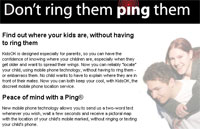 The bit that may strike fear into parents trying to foist these phones on their offspring is that fact that kids have to opt in to the KidsOK service and they can turn off the service any time they like.
The bit that may strike fear into parents trying to foist these phones on their offspring is that fact that kids have to opt in to the KidsOK service and they can turn off the service any time they like.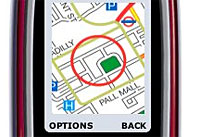 Larger families can enable further handsets on payment of £4.95 p.a. per handset (~US$8.75, ~€7.25). Further ‘pings’ are purchased in bundles of 20 from KidsOK for £9.95 (~US$17.5, ~€14.5).
Larger families can enable further handsets on payment of £4.95 p.a. per handset (~US$8.75, ~€7.25). Further ‘pings’ are purchased in bundles of 20 from KidsOK for £9.95 (~US$17.5, ~€14.5).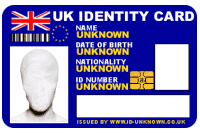 In an initiative led by the Finnish Population Register (VRK), a department of the Finnish Ministry of the Interior, mobile specialist SmartTrust is helping mobile users in Finland to securely identify themselves and sign for goods and services across a range of public and private sector providers using just their mobile phone.
In an initiative led by the Finnish Population Register (VRK), a department of the Finnish Ministry of the Interior, mobile specialist SmartTrust is helping mobile users in Finland to securely identify themselves and sign for goods and services across a range of public and private sector providers using just their mobile phone. “The mobile phone and SIM card have, by default, become the world’s most pervasive smart card / card reader combination,” explains Paul Cuss, CEO of SmartTrust. “Unlike the existing credit-card sized ID cards that Finns carry around in their wallets, the SIM-based certificates do not require the user to be present when authenticating himself via an independent card reader. In this instance, the handset acts as the card reader, requesting the user to authenticate himself through a PIN code request, and sends an electronic digital signature to the service provider.”
“The mobile phone and SIM card have, by default, become the world’s most pervasive smart card / card reader combination,” explains Paul Cuss, CEO of SmartTrust. “Unlike the existing credit-card sized ID cards that Finns carry around in their wallets, the SIM-based certificates do not require the user to be present when authenticating himself via an independent card reader. In this instance, the handset acts as the card reader, requesting the user to authenticate himself through a PIN code request, and sends an electronic digital signature to the service provider.” The BBC has teamed up with Hewlett-Packard Labs and Gavitec to provide a digital collaboration based around the BBC TWO series, Coast.
The BBC has teamed up with Hewlett-Packard Labs and Gavitec to provide a digital collaboration based around the BBC TWO series, Coast.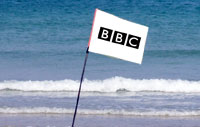 For phone-allergic types, the BBC will also make MP3 audio from the project available as a free download from bbc.co.uk.
For phone-allergic types, the BBC will also make MP3 audio from the project available as a free download from bbc.co.uk.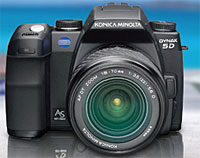 It wasn’t that long ago that digital dSLRs were the sole preserve of well-heeled enthusiasts and the pestering paparazzi, but with prices continuing to fall, digital dSLRs are coming within the reach of the mainstream.
It wasn’t that long ago that digital dSLRs were the sole preserve of well-heeled enthusiasts and the pestering paparazzi, but with prices continuing to fall, digital dSLRs are coming within the reach of the mainstream. In February this year, Canon returned with its cheaper-faster-more featured next generation 8 megapixel camera, the EOS350D (Digital Rebel XT) retailing for US$880 (~£503, ~€728) while Nikon’s similarly priced D50 was introduced in April.
In February this year, Canon returned with its cheaper-faster-more featured next generation 8 megapixel camera, the EOS350D (Digital Rebel XT) retailing for US$880 (~£503, ~€728) while Nikon’s similarly priced D50 was introduced in April.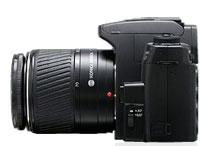 The rest of the specs of the camera are impressive but not cutting edge: 6.1 megapixel sensor, JPEG and RAW image capture (RAW: 3 fps, up to 5 frames), white-balance bracketing, 100-3200 ISO, built-in pop flash and USB 2.0.
The rest of the specs of the camera are impressive but not cutting edge: 6.1 megapixel sensor, JPEG and RAW image capture (RAW: 3 fps, up to 5 frames), white-balance bracketing, 100-3200 ISO, built-in pop flash and USB 2.0.